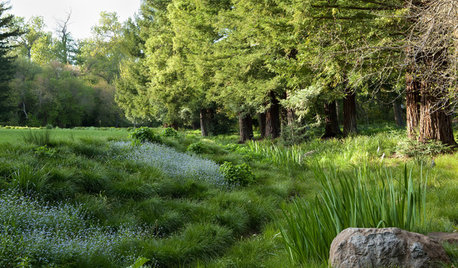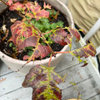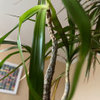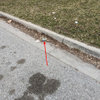Corkscrew Willow-issues
greyandamy
12 years ago
Related Stories

OUTBUILDINGSMy Houzz: Simply Escapist in Santa Cruz
Thrifty furnishings and a romantic willow tree turn a backyard cabin into a comfy, unpretentious hideaway
Full Story
LANDSCAPE DESIGNHow to Move Water Through Your Landscape
Swales, underground pipes or a mix of both: There’s more than one way to distribute water in the garden
Full Story
Motifs: A Month of Mustache Love
Guys grow whiskers in November to raise awareness for men's health. Maybe your home should sprout some, too
Full Story
LANDSCAPE DESIGNTo Manage Stormwater Sustainably, Understand Your Site
Follow this guide to learn how water moves through your landscape and how best to manage it
Full Story
ENTERTAINING8 Stress-Busting Tips for Hosting Small Gatherings
Make entertaining easy with these ideas for casual get-togethers
Full Story
GARDENING GUIDES5 Best-Behaved Trees to Grace a Patio
Big enough for shade but small enough for easy care, these amiable trees mind their manners in a modest outdoor space
Full Story
GARDENING AND LANDSCAPINGGrow a Lush Privacy Screen
No need to wait forever for patio privacy the green way. These 10 ideas will get your screening up and running in no time
Full Story
KITCHEN DESIGNKitchen of the Week: Double Trouble and a Happy Ending
Burst pipes result in back-to-back kitchen renovations. The second time around, this interior designer gets her kitchen just right
Full Story
HOUZZ TOURSMy Houzz: Cozy Country Meets Bohemian Artistic in Australia
Healthy helpings of salvage and rustic art give a pastureland home free-spirited style
Full Story
GREAT HOME PROJECTSHow to Give Your Driveway and Front Walk More Curb Appeal
Prevent injuries and tire damage while making a great first impression by replacing or repairing front paths
Full StoryMore Discussions









rhizo_1 (North AL) zone 7
greyandamyOriginal Author
Related Professionals
Lakewood Landscape Architects & Landscape Designers · Oconomowoc Landscape Architects & Landscape Designers · Brooklyn Center Landscape Architects & Landscape Designers · Norwood Landscape Contractors · Dixon Landscape Contractors · El Mirage Landscape Contractors · El Sobrante Landscape Contractors · Kailua Landscape Contractors · Lebanon Landscape Contractors · Quincy Landscape Contractors · South Farmingdale Landscape Contractors · South Hackensack Landscape Contractors · Chesapeake Ranch Estates Stone, Pavers & Concrete · Rolling Meadows Stone, Pavers & Concrete · Centerville Stone, Pavers & Concreteken_adrian Adrian MI cold Z5
rhizo_1 (North AL) zone 7
greyandamyOriginal Author
ken_adrian Adrian MI cold Z5
rhizo_1 (North AL) zone 7
ken_adrian Adrian MI cold Z5
rhizo_1 (North AL) zone 7
ken_adrian Adrian MI cold Z5
strobiculate